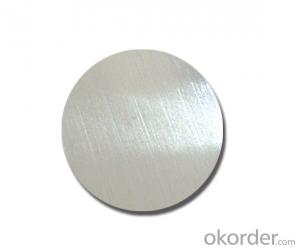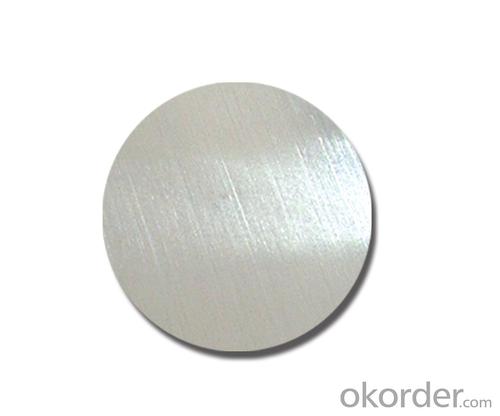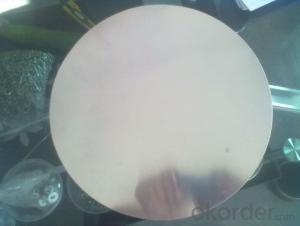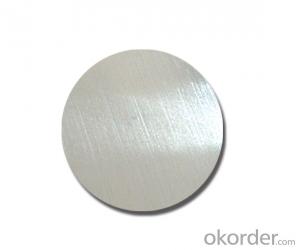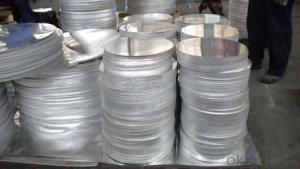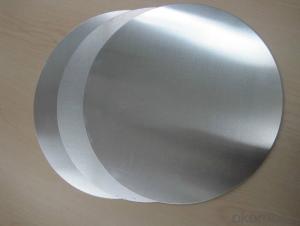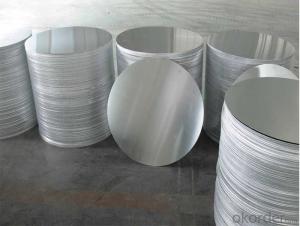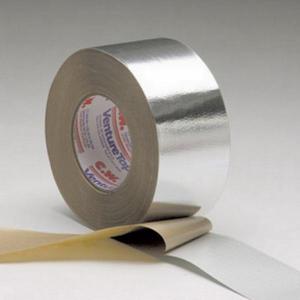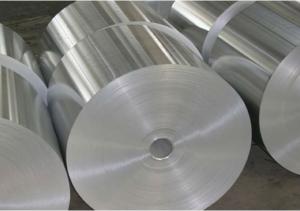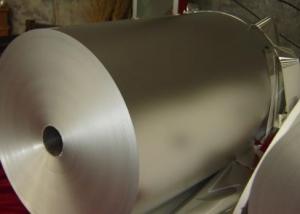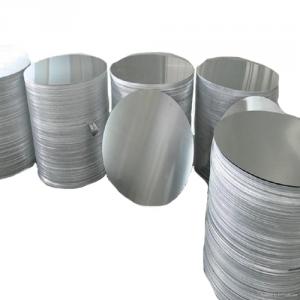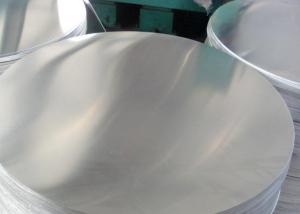Aluminum AA1070 Mill Finished Aluminum Circles for Cookware
- Loading Port:
- Shanghai
- Payment Terms:
- TT OR LC
- Min Order Qty:
- 3 m.t.
- Supply Capability:
- 1000 m.t./month
OKorder Service Pledge
OKorder Financial Service
You Might Also Like
Specification
1.Structure of AA1070 Mill Finished Aluminum Circles Used for Cookware Description
AA1070 Mill Finished Aluminum Circles Used for Cookware is made from aluminum coils 1xxx. AA1070 Mill Finished Aluminum Circles Used for Cookware has great ductility, heat conductivity, anti-corrosion and moisture resistance properties.
AA1070 Mill Finished Aluminum Circles Used for Cookware are widely used for kitchen wares including fried pans, non-sticky pans, cooking pots,hard anodized cookware, pressure cooker and house hold utensils.
2. Main features of AA1070 Mill Finished Aluminum Circles Used for Cookware
a.Competitive price---We have our own mills and can produce mill finished aluminium coils, so we can control the production cost better.
b.Professional after-sale service---We have more than 15 years exportation experience and you need not worry about the exporation problems.
c.Fast delivery time---We can control the delivery time within 35 days.
3.AA1070 Mill Finished Aluminum Circles Used for Cookware Images
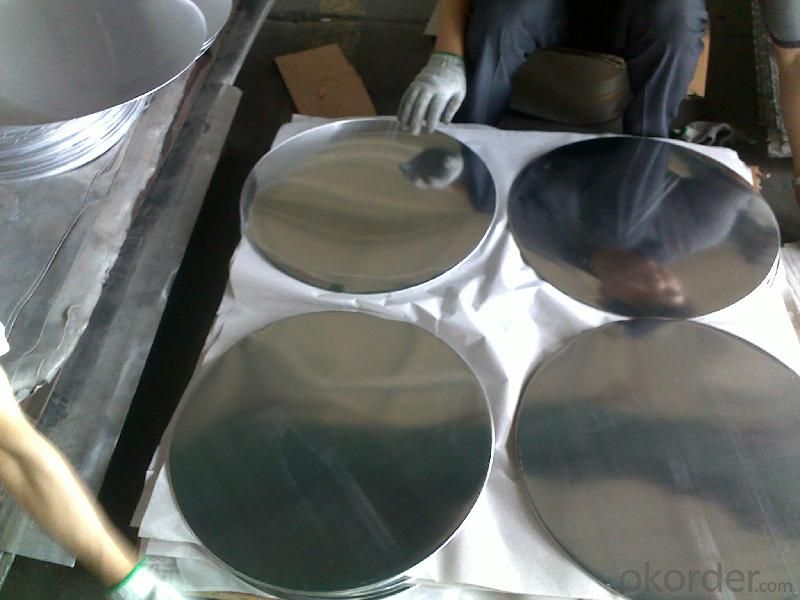
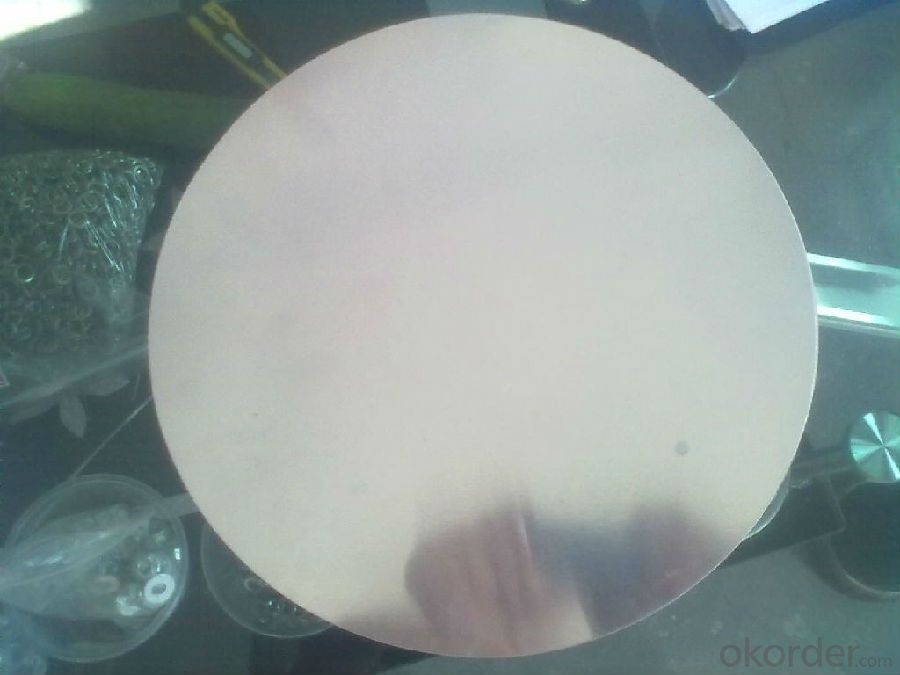
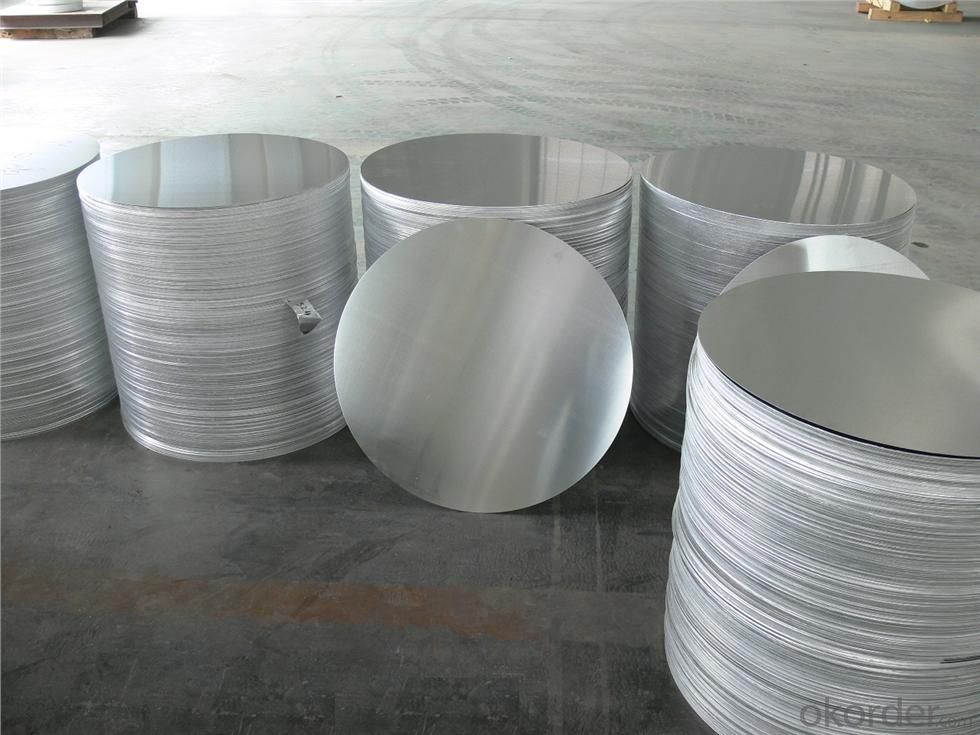
4.AA1070 Mill Finished Aluminum Circles Used for Cookware Specification
Alloy | AA1070 |
Temper | H14, H16, H18, H22, H24, H26, H32, O/F |
Thickness | 0.5mm -- 4mm |
Diameter | 200mm -- 1200mm |
Standard | GB/T 3880-2006 |
5. FAQ of AA1070 Mill Finished Aluminum Circles Used for Cookware
A.How to guarantee the quality?
Customers are welcome to our mill to visit and check the products. Besides, we can arrange a third party to test AA1070 Mill Finished Aluminum Circles Used for Cookware.
B.When will you deliver the products?
AA1070 Mill Finished Aluminum Circles Used for Cookware will be delivered within 35 days after receiving advanced payment or original L/C.
- Q: This question asks for an enumeration of different types of aluminum alloys.
- <p>Aluminum alloys are categorized based on their primary alloying elements and their applications. Some common types include: 1) 1000 series (99% pure aluminum), 2) 2000 series (alloyed with copper), 3) 3000 series (alloyed with manganese), 4) 4000 series (alloyed with silicon), 5) 5000 series (alloyed with magnesium), 6) 6000 series (alloyed with magnesium and silicon), and 7) 7000 series (alloyed with zinc). These alloys have various properties, making them suitable for different industries such as aerospace, automotive, and construction.</p>
- Q: Describe the impact of silicon on the properties of aluminum alloys.
- <p>The addition of silicon to aluminum alloys significantly enhances their properties. Silicon increases the alloy's fluidity, which is beneficial for casting processes, leading to improved casting quality. It also raises the alloy's resistance to corrosion, particularly in marine environments. Furthermore, silicon additions can improve the alloy's mechanical properties, such as strength and hardness, without significantly compromising ductility. This makes the alloy more suitable for applications requiring wear resistance. However, it's important to note that excessive silicon can lead to a decrease in the alloy's toughness and increase the risk of hot cracking during casting.</p>
- Q: This question asks for recent applications of aluminum in the transportation industry.
- <p>Aluminum has found new uses in transportation due to its lightweight and high strength properties. It's increasingly used in electric vehicles to reduce weight and extend battery life. Aluminum alloys are also utilized in the construction of high-speed trains and aircraft to improve fuel efficiency and performance. In addition, aluminum is employed in the manufacturing of automotive parts such as engine components, wheels, and body panels. Furthermore, it's used in the production of lightweight bicycles and other transportation infrastructure like bridges and road signs. The trend towards more sustainable and efficient transportation continues to drive innovative uses for aluminum.</p>
- Q: This question asks about the methods and steps involved in processing aluminum.
- <p>Aluminum processing involves several key steps: extraction from bauxite ore, refining, and fabrication. Initially, bauxite is mined and then processed to remove impurities. The Bayer process is commonly used to extract alumina (aluminum oxide) from bauxite by dissolving it in a caustic soda solution. The alumina is then smelted in a reduction furnace using the Hall-H茅roult process, where it is dissolved in molten cryolite and electrolyzed to produce pure aluminum. Finally, the aluminum is shaped and fabricated into various products through methods such as casting, extrusion, or rolling.</p>
- Q: I would like to ask where there is a need for these minerals? How much is it per ton?
- Liaoning. Do you need silica there? If necessary, please leave your contact informationChasing the answerWe also have a lot here, you can go to the glass factory near you to contact, it is worthless, not enough freight
- Q: What are the positive environmental impacts associated with the use of aluminum?
- <p>Aluminum offers several environmental benefits. It is highly recyclable, which means it can be reused multiple times without losing its properties, reducing the need for raw materials and the energy required for extraction and processing. Aluminum is also lightweight, which can reduce fuel consumption and emissions in transportation. Additionally, aluminum is a good conductor of heat and electricity, making it energy-efficient in various applications such as insulation and electrical wiring. Its durability and resistance to corrosion mean it lasts longer, reducing waste and the need for frequent replacements.</p>
- Q: What are the potential health advantages of minimizing contact with aluminum?
- <p>Reducing exposure to aluminum may have health benefits, particularly in terms of neurological health. Aluminum has been linked to neurodegenerative diseases like Alzheimer's, although the evidence is not conclusive. Lowering exposure could potentially reduce the risk of cognitive decline. Additionally, aluminum may affect bone health and the immune system, so minimizing contact could support stronger bones and a more robust immune response. However, it's important to note that aluminum is naturally present in many foods and water sources, and moderate exposure is generally considered safe by health authorities.</p>
- Q: This question asks about the consequences of corrosion on aluminum, including how it affects the material's properties and performance.
- <p>Corrosion on aluminum can lead to a loss of structural integrity, reduced strength, and increased brittleness. It can cause pitting, which is localized corrosion that leads to the formation of small holes or cavities on the surface. Over time, this can lead to material failure. Corrosion can also alter the appearance of aluminum, causing discoloration and a rough texture. In extreme cases, it can lead to the complete degradation of the aluminum, resulting in the loss of the material's functionality. Proper maintenance, such as applying protective coatings or using corrosion-resistant aluminum alloys, can mitigate these effects.</p>
- Q: This question asks about the amount of energy needed to produce aluminum, including the process and factors that influence energy consumption.
- <p>Producing aluminum requires a significant amount of energy, primarily due to the electrolytic process used to extract it from its ore, bauxite. The Hall-H茅roult process, the most common method, consumes about 15,000 to 16,000 kilowatt-hours of electricity per ton of aluminum produced. This high energy demand is largely due to the strong chemical bonds in aluminum oxide, which must be broken to release the aluminum. Energy consumption can vary based on the efficiency of the smelting process, the quality of the bauxite, and the energy source used, with renewable energy potentially reducing the carbon footprint but not necessarily the total energy input.</p>
- Q: Is it possible to enhance the efficiency of solar panels by utilizing aluminum?
- <p>Yes, aluminum can be used to improve the efficiency of solar panels. Aluminum is lightweight, corrosion-resistant, and has good thermal conductivity, which can help in dissipating heat and maintaining optimal operating temperatures for solar cells. It is also used in the manufacturing of solar panel frames, providing structural support while reducing the overall weight of the panels. Additionally, some research suggests that using aluminum in the backsheet of solar panels can enhance their durability and efficiency. However, the extent of efficiency improvement depends on various factors, including the specific design and manufacturing process of the solar panels.</p>
Send your message to us
Aluminum AA1070 Mill Finished Aluminum Circles for Cookware
- Loading Port:
- Shanghai
- Payment Terms:
- TT OR LC
- Min Order Qty:
- 3 m.t.
- Supply Capability:
- 1000 m.t./month
OKorder Service Pledge
OKorder Financial Service
Similar products
Hot products
Hot Searches
